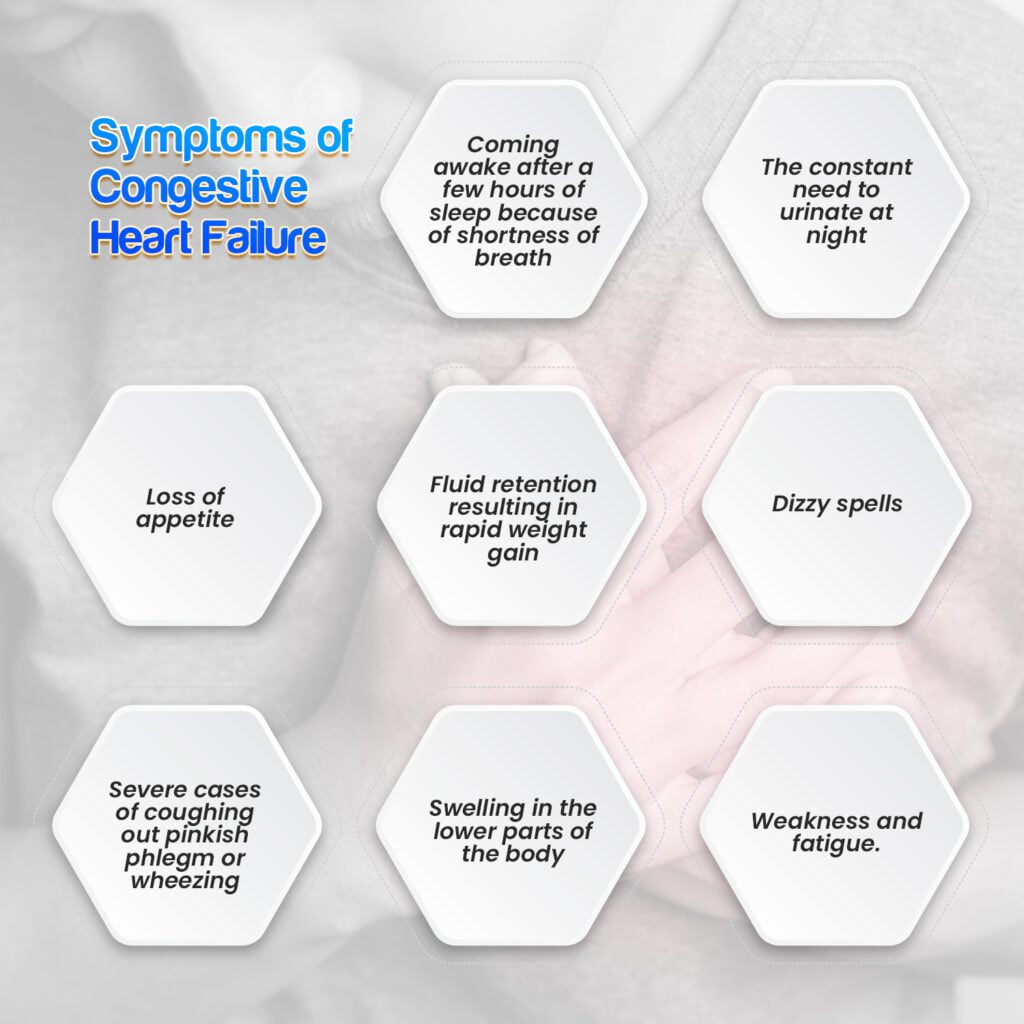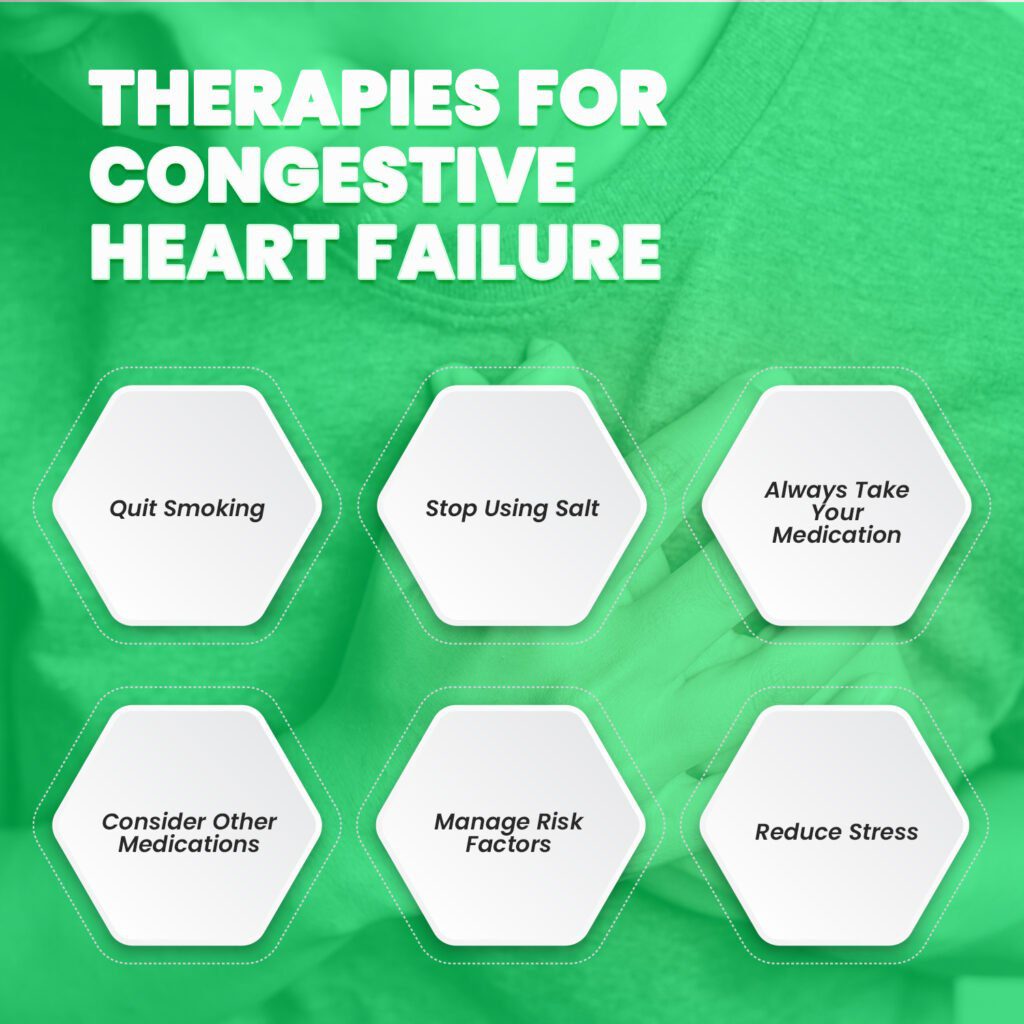Heart failure can be a frightening term. The term does not mean the heart has ‘failed’ or stopped working as some people might interpret it. However, it is a medical condition that can be life-threatening if not taken seriously. Because I understand the severity of the condition, I have compiled a list of natural remedies for congestive heart failure.
Table of Contents
If you’re suffering from the disease or you know anyone with the ailment, you can follow the processes explained in this post. The first thing a sufferer should do is visit the hospital for a proper diagnosis.
You will learn the following from this post:
What is Congestive Heart Failure?
Also known as CHF, congestive heart failure is a severe medical condition in which the heart cannot pump blood that will be enough for the body’s circulatory needs. Even though the condition can worsen over time, one can still live with the disease for many years. However, it is highly advisable to seek treatment immediately after diagnosis, or the symptoms are already manifesting themselves.
Symptoms of Congestive Heart Failure

Due to congestive heart failure, fluid may gather in the lower legs, resulting in swelling. The fluid may also collect in the lungs, resulting in shortness of breath. Further symptoms of CHF may include the following:
- Coming awake after a few hours of sleep because of shortness of breath
- The constant need to urinate at night
- Loss of appetite
- Fluid retention resulting in rapid weight gain
- Dizzy spells
- Severe cases of coughing out pinkish phlegm or wheezing
- Swelling in the lower parts of the body. Fluids are retained in the legs, ankles, and feet if the right side of the heart is affected. Fluid retains in the lung when the left side of the heart is affected
- Weakness and fatigue, especially during physical exertion due to insufficient oxygen getting to the muscles
Causes of Congestive Heart Failure
Congestive heart failure can result from any condition that causes a change in the heart’s pumping power. An example is damage to the heart muscle due to a heart attack or the hardening and thickening of the heart muscle because of diabetes, high blood pressure, or the irregular functioning of the heart valves.
When the heart valve becomes constantly overworked, the heart becomes thicker and larger than normal – as would any muscle that is consistently strained beyond its normal workload. These strains compromise the heart’s capacity and efficiency over time.
Damaged heart valves, high blood pressure, morbid obesity, a bacterial or viral infection in the heart muscle, emphysema, an underactive or overactive thyroid gland, and/or diabetes are the conditions capable of contributing to congestive heart failure; so the natural remedies for congestive heart failure are essential.
How to Know if You Have Congestive Heart Failure
Over 25 percent of people who have congestive heart failure do not even know it until they experience something serious. Here is a reason it is always advisable to visit your doctor for a regular checkup. During this checkup, you will have your triglyceride, cholesterol, and blood pressure levels checked and monitored. Besides the apparent symptom of CHF, observe the following pointers and take them seriously:
- Your body could be warning you that CHF is imminent if you feel like you have a large bull sitting on your chest after you have recently climbed the stairs. Likewise, chest pain (angina) is a red flag o which you should pay proper attention.
- Stomach upset or nausea. This could be more serious than the guacamole you ate the night before. If you have a recurrent bout of stomach upset and you have taken some necessary medications for stomach upset, yet the condition refuses to subside, then it could be a sign of heart disease. Visit your medical practitioner immediately for a proper checkup.
The earlier you address the problem of congestive heart failure, the easier its treatment will be. CHF that has been in the body for a long time often requires extra effort to treat, and natural remedies for congestive heart failure may not completely take care of the condition.
Therapies for Congestive Heart Failure


Making dietary changes to control obesity and diabetes is an essential therapeutic step because both diseases are a part of congestive heart failure. Consult your nutritionist for a diet designed for people suffering from the condition. In addition, the following measures are also equally crucial for the healing process:
- Quit smoking
Tobacco is a substance that has damaging and direct effects on the cardiovascular system.
- Stop using salt
Sodium is an element that promotes the retention of fluid in the body. Therefore, avoid eating foods high in sodium. The same should apply to unnecessary salt and heavily processed foods.
- Always take your medication
Digoxin, beta-blockers, diuretics (water pills), and other necessary drugs can decrease the stress on the heart and improve its efficiency.
- Consider other medications
You can also use other medicines, especially over-the-counter NSAIDs like Aleve (Naproxen), Motrin (ibuprofen), and aspirin. You should know that these drugs may increase fluid retention. It will be wise to discuss this with your doctor before taking any of them.
- Manage risk factors
Discuss with your doctor how to address atherosclerosis, diabetes, and high blood pressure – including other heart conditions.
- Reduce stress
When you are stressed, some hormones will be released by the body to battle depression and anxiety. Unfortunately, these hormones make the heart work harder than usual. To control stress, practice relaxation techniques, seek positive social interactions, and volunteer. Relaxing breath exercises can also help improve the oxygenation of the blood and ultimately take off the heart’s workload.
Nutrition and Supplements for Congestive Heart Failure
The following supplements can be tried by anyone at risk of developing congestive heart failure or already managing the disease. Most of these supplements are also gotten from plants used as natural remedies for congestive heart failure:
- Coenzyme (CoQ10)
This is a powerful antioxidant, and it improves the heart’s function by boosting the metabolism of the mitochondria in the cells of the heart. The heart cell is the place for the creation of the energy for muscular action. Therefore, the coenzyme is a vital supplement for patients suffering from heart failure. This antioxidant is also capable of lowering blood pressure.
- L-Carnitine
This is an amino acid, and it is effective for energy metabolism in the heart’s muscle cells.
- Hawthorn
This is a herb that performs almost the same function as digoxin. In addition, Hawthorn is capable of providing a mild diuretic effect and increasing heart-muscle strength.
If you are choosing to go with the supplement, you are highly advised to discuss the use of any of the supplements with your doctor so that you can know the proper dosage to take. Overdosing or under-dosing yourself may have severe effects on your health. You do not want to add another medical problem to the congestive heart failure from which you are already suffering, do you? Do not self-medicate without your doctor’s approval.
Choosing natural remedies for congestive heart failure is still a safer, cheaper, more effective, and more straightforward approach to battling CHF instead of taking supplements. There is often minimal risk or no risk at all to using home remedies to battle the condition – and these remedies work pretty effectively.
Natural Remedies for Congestive Heart Failure
1. Bran
Bran is a kind of cereal high in fiber content. The fiber will help put your cholesterol at an appropriate level. Other foods rich in fiber content include oats, barley, whole grains like lentils, and brown rice. Both black beans and kidney beans also contain good fiber.
2. Olive Oil
The American Dietetic Association and the American Heart Association recommend that you get most of your fat from monounsaturated sources. Olive oil is an excellent source of fat. Instead of using vegetable oil, you can use olive oil whenever you need oil in your food or cooking.
3. Peanut Butter
Two tablespoonfuls of peanut butter every day will give you a third of vitamin E. since it is a vitamin for fats, it is more abundant in fattier foods such as nuts and vegetable oils. However, be careful about the way you use peanut butter if you are watching your weight.
4. Pecans
Pecans are rich in magnesium which is another body-friendly nutrient. For example, an ounce of pecan poured over a spinach salad can provide you with 1/3 of your daily allowance of magnesium.
5. Whole -wheat Bread
Peanut butter spread on a slice of whole-wheat bread is a great snack for your heart. A slice of whole-wheat bread contains 11 mcg of selenium. Selenium is an antioxidant mineral that protects your body by working with vitamin E.
6. Wine
Drinking a glass of alcohol every day can help battle heart disease. Health experts agree that alcohol in moderate amounts is good for health. Moderate, in this case, means one glass a day for women and two glasses for men. A drink means 12 ounces of beer, 1.5 ounces of whiskey, or 5 ounces of wine.
7. Broccoli
Calcium is another essential nutrient the body needs. And even though milk is one of the most popular suppliers of calcium, it is not the only food rich in nutrients. Many other foods are non-dairy but contain calcium. Such foods include okra, pinto beans, figs, salmon, and kale. A cup of broccoli can give you about 90 milligrams of calcium.
8. Chicken
Three ounces of chicken will provide you with 1/3 of your daily requirement for vitamin B6, which is a nutrient necessary for maintaining heart health.
9. Salmon
Anyone suffering from congestive heart failure or at risk of developing the condition should add fatty fish to their diet. A couple of ounces of salmon will provide you with the daily requirement for vitamin B12. Vitamin B12 is a good source of omega-3 fatty acid – a nutrient capable of lowering triglycerides and reducing blood clots that could pose a potential risk to the heart by blocking the arteries carrying blood to it. So salmon helps in keeping your heart healthy.
10. Spinach
You can make a salad by using spinach rather than the usual iceberg lettuce. Spinach will provide you with the folic acid your body needs (cups of spinach contains 130 mcg of folic acid). Along with other B vitamins such as B6 and B12, folic acid can effectively prevent heart disease.
11. Strawberries
As milk is not the only source of calcium, so is orange not the only vitamin C. you can meet up with 24 milligrams of heart-healthy vitamin with just a half cup of summer’s sweet berry. Vitamin C is vital to maintaining a healthy and happy heart. Strawberries are also a great provider of such nutrients as potassium and fiber, which are very important to the heart’s overall health.
12. Sweet Potatoes
Sweet potatoes provide you with double your daily requirements for vitamin A, an essential nutrient whose work is to protect the heart. Unfortunately, only a few people know that sweet potatoes are great for fighting heart diseases.
13. Garlic
Garlic is filled with antioxidants, which can lessen plaque buildup in the body, reduce the problem of chest pain, and generally keep the heart healthy. It is also a mild anticoagulant, so it helps in thinning the blood. The advantages of garlic may take some time though. One study revealed that it took a couple of years of using garlic before it begins to heal the heart.
Final Thoughts
The whole point of this post, especially if you are not yet suffering from the condition, is to respect your body, particularly your heart. And you can do this simply by giving the heart the best chance for improvement. For this to happen, you will have to work hand-in-hand with your physician. While the natural remedies for congestive heart failure might work for most people, they may not work for some because every patient is different.
Post Disclaimer
The information contained in this post "13 Natural Remedies for Congestive Heart Failure [The Simple Approaches]" is for educational purposes only. Always consult your primary care doctor before using the remedies that are provided. The information is provided by The Hidden Cures and while we do timely, in-depth research on the information that we provide to you, everything stated may not be up to date or accurate from the time it was written.

My dad was diagnosed with Congestive heart failure (CHF) 4yeras ago. He never smoked a day in his life. The only treatment he received after diagnosis was oxygen. He was supposed to have been prescribed Esbriet but never got the prescription from the doctor. During the 2022 pandemic I came across a herbal clinic on YouTube which caught my attention .I purchased the herbal products and he used them for almost 5 month as they instructed. To my greatest surprise the herbal formula has successfully gotten rid of my CHF condition .They promised us total cure but did not believe it because all my life we were told there is no cure for CHF . He’s living proof that there is a cure for CHF. Many people are still suffering due to lack of information about this disease
I too have chf and would like to know what he took to eliminate his chf..thank you